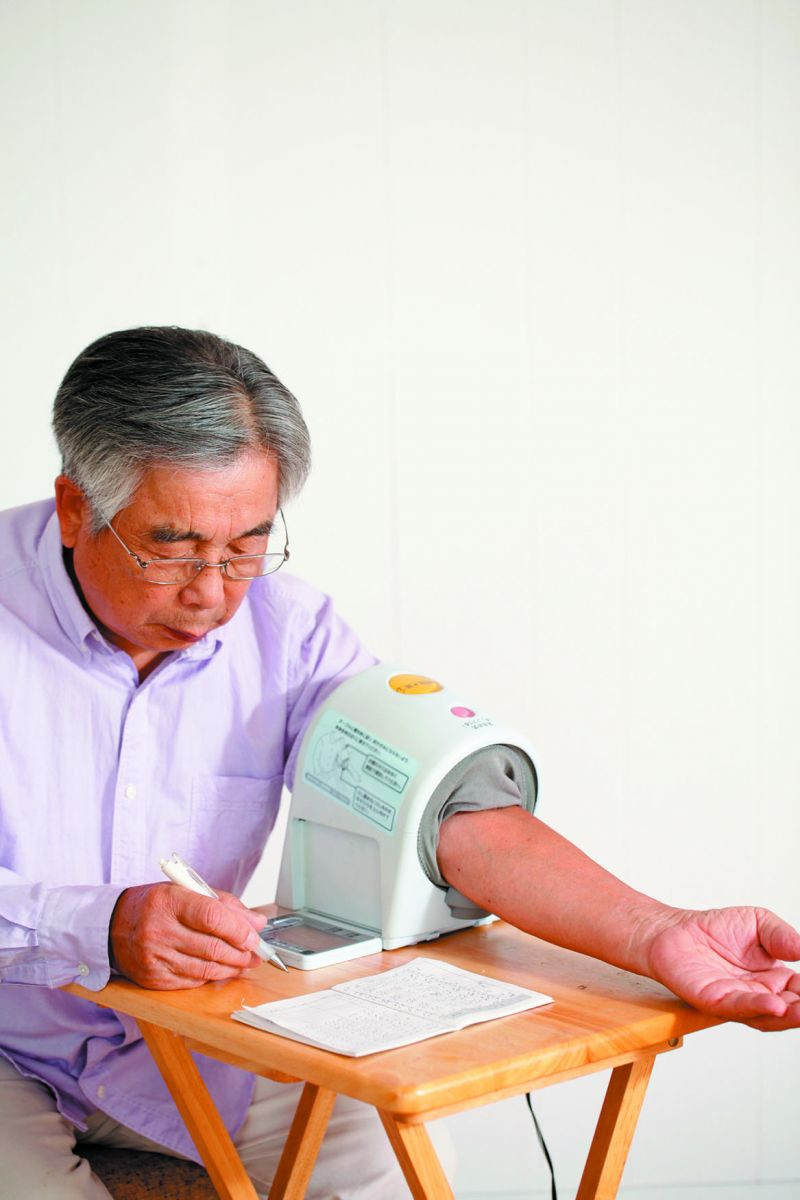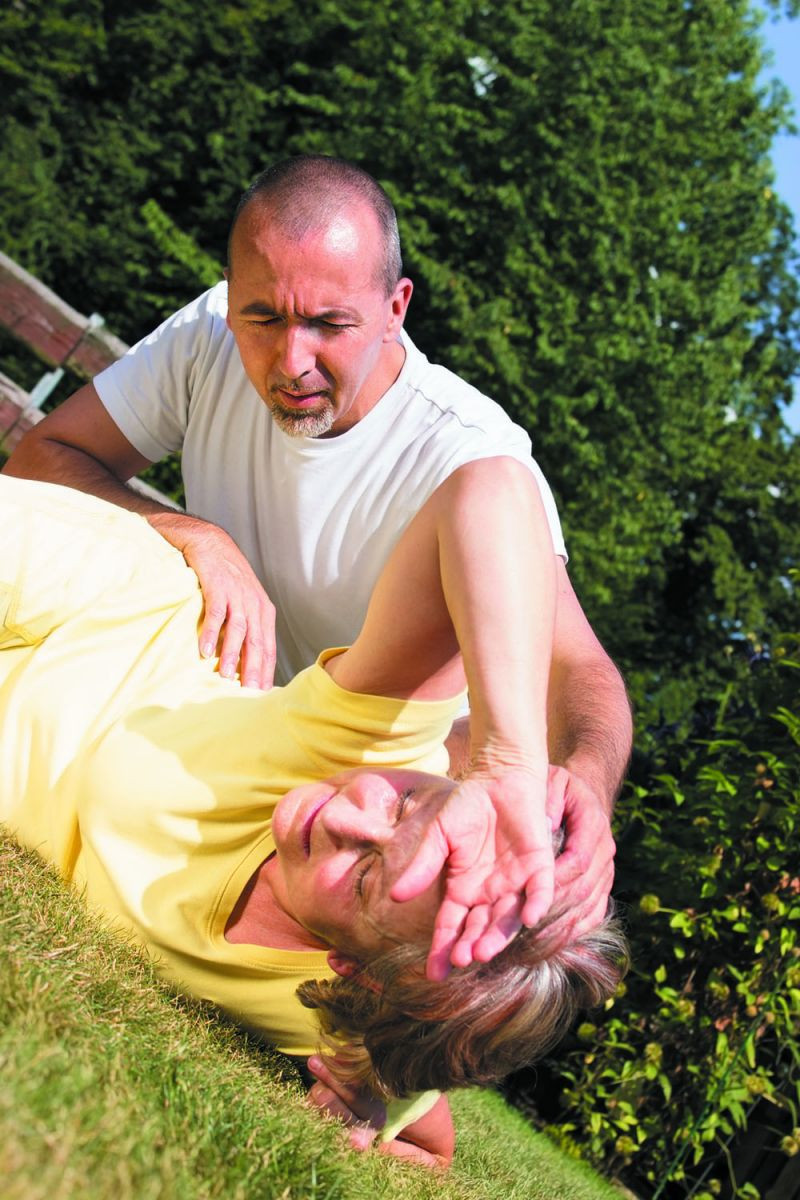
Tips to leverage neuroplasticity to maintain cognitive fitness as you age

Can white noise really help you sleep better?

Celiac disease: Exploring four myths

What is prostatitis and how is it treated?

What is Cushing syndrome?

Exercises to relieve joint pain

Think your child has ADHD? What your pediatrician can do

Foam roller: Could you benefit from this massage tool?

Stepping up activity if winter slowed you down

Common causes of cloudy urine
Controlling Your Blood Pressure Archive
Articles
Statin use may not benefit people ages 75 or older, study suggests
Research we're watching
To provide more information on the value of statins for older people, which is still a matter of debate, researchers analyzed data on people over 65 who were enrolled in ALLHAT-LLT, a large study conducted between 1994 and 2002.
All participants (average age 71) had high cholesterol and high blood pressure but not heart disease. They were randomly assigned to two groups. One group, of 704 women and 763 men, took pravastatin (Pravachol). The other group, of 711 women and 689 men, didn't take a statin. The analysis indicated that during the five-year study period, there was no significant difference between the groups in the frequency of heart attacks, deaths from heart disease, or deaths from any cause, either among participants ages 65 to 74 or among those 75 or older. The results were published online May 22, 2017, by JAMA Internal Medicine.
What’s the right blood pressure number for you?
New guidelines suggest that people with no history of cardiovascular disease may not benefit from more aggressive treatment.
High blood pressure remains a strong indicator for heart attack or stroke risk. But how high is too high?
The American College of Physicians (ACP) and the American Academy of Family Physicians (AAFP) recently released updated guidelines for treating hypertension (high blood pressure) in adults ages 60 and older.
Fainting: Frightening, but seldom serious
Learn why fainting occurs and when you should seek medical attention.
One minute you're feeling a bit woozy; the next thing you know, you're flat on your back wondering what happened. No matter what you call it — swooning, passing out, or fainting — the experience is surprisingly common. About a third of people say they've fainted at least once.
Defined as a sudden, temporary loss of consciousness, fainting occurs when something interrupts blood flow to the brain. Doctors call it syncope, which comes from a Greek word meaning "contraction" or "cut off." Although often harmless, fainting can cause injuries and sometimes signals a problem with the heart or circulatory system.
Elevated blood pressure may not predict early death in those with weak grip strength
In the journals
A study of almost 7,500 men and women ages 65 or older suggests that among those with weak grip strength, elevated blood pressure does not serve as a sign of a high risk of early death.
Grip strength is a commonly used measure to assess frailty in older individuals. The research, published online March 17, 2017, by the Journal of the American Geriatrics Society, measured the participants' grip strength and blood pressure. Grip strength was measured with a hand dynamometer, with "weak" defined as a reading of less than 26 kilograms (kg) for men.
Can your blood pressure be too low?
Recent findings raise concerns about lowering diastolic blood pressure — the second number in your blood pressure reading — too far.
Image: © Wavebreakmedia/Thinkstock
More of us than ever before are taking medications to lower our blood pressure. Longstanding guidelines suggest that most people should aim for a systolic blood pressure (the first number in a reading) no higher than 140 millimeters of mercury (mm Hg). But in 2015, the results of the Systolic Blood Pressure Intervention Trial (SPRINT) suggested that reaching a target of 120 mm Hg could further reduce the risks associated with high blood pressure, including heart attack, stroke, heart failure, and death.
Yet reaching that lower target often requires three blood pressure medications, which can increase the likelihood of side effects. Two observational studies and one clinical trial have raised concerns about lowering blood pressure — particularly diastolic pressure — too far. Diastolic blood pressure (the second number in a reading) represents the pressure between beats when the heart relaxes. "When your systolic blood pressure gets too low, it can manifest as lightheadedness, fainting, and weakness. But low diastolic pressure by itself doesn't have any symptoms," says Dr. Paul Conlin, professor of medicine at Harvard Medical School and chief of medicine at the VA Boston Healthcare System.
Do premature heart attacks run in your family?
If so, be extra vigilant about measuring and managing your blood pressure and cholesterol.
Filling out those family history forms at the doctor's office can be tedious. But sometimes, the devil is in those details. Because heart disease is so common, many people check "yes" to the question about whether their father or mother had heart disease. But if your father had a heart attack at age 77, that's likely different than if his heart attack happened when he was only 44.
"If you have any family history of heart disease, that should serve as a keen reminder to pay attention to factors that can raise your risk of a heart attack, such as high cholesterol, high blood pressure, and diabetes," says Dr. Howard Sesso, an epidemiologist with the division of preventive medicine at Harvard-affiliated Brigham and Women's Hospital. But if a parent or sibling had a premature heart attack, that's an even stronger signal to be more proactive in monitoring and lowering your risk, he adds. A premature or early heart attack is one that occurs before age 55 in a man or before age 65 in a woman.
As physical activity level rises, blood pressure may drop
Research we're watching
The more physically active you are, the lower your risk of high blood pressure, a study in the April 2017 issue of Hypertension suggests.
Researchers pooled data from 29 studies involving a total of more than 330,000 people, about 20% of whom had high blood pressure. They examined the association between high blood pressure and leisure-time physical activity (walking, dancing, or gardening, for example) as measured by metabolic equivalents (METs).
Do calcium supplements interfere with calcium-channel blockers?
Do calcium supplements interfere with calcium-channel blockers?
Ask the doctors
Q. I've just been prescribed the calcium-channel blocker Norvasc [amlodipine] for high blood pressure. I also take a 600-milligram calcium supplement every day for my bones. Will they cancel each other out?
A. You don't need to worry about taking a daily calcium supplement with a calcium-channel blocker. In the body, calcium not only builds bones but also powers muscle contractions. Calcium-channel blockers lower blood pressure by reducing the amount of calcium available to contract blood vessels. However, they don't prevent calcium in the blood from being incorporated into bone.
Is your salad dressing hurting your healthy diet?
Bottled dressings are often rich sources of saturated fat, calories, sodium, and added sugar.
Image: © VeselovaElena/Thinkstock
You're eating more salad for good health. But you may be undoing the benefits when you use a store-bought salad dressing.
"I have some clients who say they'll only eat salad if they can use dressing. That can add a lot of calories, sodium, sugar, and saturated fat," says registered dietitian Kathy McManus, director of the Department of Nutrition at Harvard-affiliated Brigham and Women's Hospital.
The value of prevention
Treating heart disease is expensive. Adopting heart-healthy habits can save money as well as lives.
If you exercise, eat right, and follow other heart-friendly habits, you're probably less likely to end up in the hospital with a heart problem. And — no surprise here — that translates to far lower health care costs. The average hospital charge for a heart operation or related procedure is about $85,000 (see "The price of treating heart disease").
A recent report shed light on the magnitude of the savings realized from heart disease prevention strategies. The study, published in the Feb. 1, 2017, Journal of the American Heart Association, focused on Medicare claims for more than 6,200 people over age 65. Health care costs were about $5,000 less per year in people with the most heart-healthy factors compared with those with the least number of factors. If all Medicare beneficiaries followed five of seven key heart-healthy habits (see "Life's Simple 7") to reduce cardiovascular disease, it would save more than $41 billion a year in Medicare costs, the study authors estimated.

Tips to leverage neuroplasticity to maintain cognitive fitness as you age

Can white noise really help you sleep better?

Celiac disease: Exploring four myths

What is prostatitis and how is it treated?

What is Cushing syndrome?

Exercises to relieve joint pain

Think your child has ADHD? What your pediatrician can do

Foam roller: Could you benefit from this massage tool?

Stepping up activity if winter slowed you down

Common causes of cloudy urine
Free Healthbeat Signup
Get the latest in health news delivered to your inbox!
Sign Up








